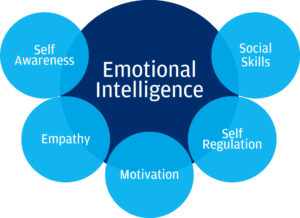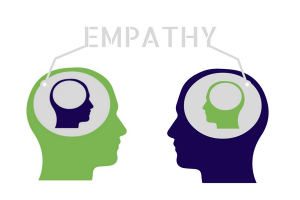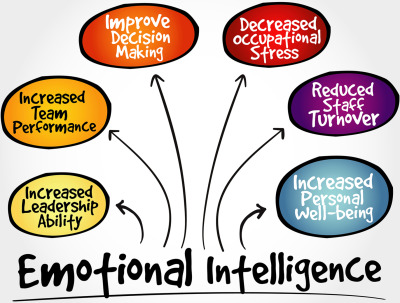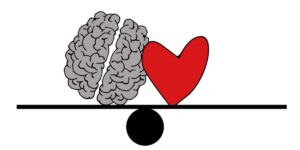Emotional intelligence is the ability to identify, understand, and manage emotions in oneself, others, and situations. It is a concept that has been around for decades but people are only recently starting to take it seriously. Emotions can change how we act. It is important for us to learn how to control them. This article will introduce an emotional intelligence toolkit with the people. The good news is there are tools out there that can help you do just this! In this article, we will be talking about some of these tools. You may see them again or you might just want to learn more about them.
What is Emotional Intelligence?

Before we can get into the different tools, we need to first understand what emotional intelligence is. Emotional intelligence has been around a long time. Two psychologists, John Mayer and Peter Salovey came up with the term in the 1990s. They described it as:
“The capacity to perceive emotion, integrate emotion with thought, understand emotion, and regulate emotion to promote emotional and intellectual growth.”
Emotional intelligence is when you can identify, understand, and manage your own emotions. You can also do this for other people and situations. This is an idea that people have had for a long time. People are just starting to take it seriously now. Emotions can change how we act. It is important for us to learn how to control them.
How Can Emotional Intelligence Help You?
Emotions can be good or bad for us depending on what they are and how we act. We can use emotional intelligence in a number of ways: we can improve relationships, we can make ourselves more motivated and we might change our behavior. We can understand ourselves better by using emotional intelligence. For example, we might realize why we do certain things.
Changing how you act is a big part of emotional intelligence. You can change your emotions and how you behave. This will help people around us as well because it may make them feel better, too! Emotional intelligence helps us to connect with others in different ways which could lead to greater relationships overall.
What Is Emotional Intelligence Toolkit?
There are a number of tools out there that can help us improve our emotional intelligence. It is important to learn how to use them so you understand other people better and motivate yourself. This article will introduce an emotional intelligence toolkit with the different tools, why they are helpful, and when you should use them!
8 Tools for Emotional Intelligence Toolkit
The tools for the emotional intelligence toolkit are:
Journaling

This is a great way to understand your thoughts and emotions. Keep a journal. Write down what happened and how you felt about it. Draw pictures or make diagrams if you want! Journaling helps us to process our thoughts and feelings which can help us deal with them better.
Mindfulness
This is a good tool for people who want to understand their feelings and emotions. You will be able to see them at the moment. If you are thinking about doing something bad, or if you do something bad, then stop. You can also learn how to change what you are doing or thinking that harms other people. Mindfulness will make you feel calmer too.
Meditation

This tool can help you to become more aware of your thoughts. It might also change how much stress you have, too! Meditation will allow us to be in the moment and learn about ourselves better. It is very relaxing which helps with reducing anger issues or anxiety problems. You might even sleep better after meditating for a little while.
Self-Awareness
This is when you know what your strengths and weaknesses are. Writing can help us learn more about ourselves. That will make it easier for other people to understand us. We might be able to see how we act in different situations. And if our emotions change quickly, we can try to control them better. This tool allows us to understand ourselves and what we can do about it.
Self-Management
Everyone has different goals, but sometimes we get in our way of reaching them. When we make a mistake, self-management will help us to figure out what happened and how to fix it. We might think more clearly about how much effort we need to put in to reach our goals. We can also set realistic goals for ourselves and then achieve them!
Social Awareness
This tool will let us see how other people think and feel. It is important when it comes to relationships. It can be hard sometimes, but we need to try to understand the person who is different from us. That way, we will be able to work better with them.
Relationship Management

How do you deal with relationships? Do people always go well at open houses? Sometimes people have problems. This tool is useful for understanding how other people feel and think about us! We can use it on our own personal relationships as well as professional ones too. Relationship management is a way to make sure that we get along better. It will also help us feel more open about what we want.
Empathy

This tool helps you understand how other people might be feeling, but not always why they are feeling that way. It could help us learn more about ourselves as well! Even if our emotions change quickly, empathy will let us know that someone else is feeling the same way. That will help us to connect with them better!
These are the thirteen tools that we can use in order to improve our emotional intelligence! They will help us understand ourselves and others much better. We should try to use these, but we might have different ideas about when they should be used.
Benefits Of Emotional intelligence Toolkit

- Increase self-comprehension: When we understand our emotions, we can control them better. We also tend to be happier when we know what makes us feel good and what doesn’t. This improved self-comprehension comes with the use of emotional intelligence tools such as mindfulness and journaling.
- Improve relationships: If you are more aware of social things, then you will be able to build stronger relationships with people. This means that you can compromise when necessary or solve conflicts in a healthy way.
- Lower stress levels: Emotional intelligence tools such as meditation are known for reducing stress. Learn more about how our emotions affect us through these mental health benefits of emotional intelligence!
- Improved emotional control and expression: If you are more aware of your feelings, it will be easier for you to express them. You can also improve how well you control yourself when dealing with challenging emotions such as anger or sadness.
- More empathy in a situation where you might not otherwise have it. Improve your understanding of yourself, the people around you, and how they feel in certain situations. You can also create more positive emotions when using this toolkit!
Negatives Of Emotional Intelligence Toolkit

Can be overwhelming: If you are not used to thinking about your emotions, then it could be hard for you. It might take a lot of work and time to understand yourself better with this toolkit!
Some people believe that emotional intelligence is something innate or inborn, so they think that these tools won’t help them become emotionally intelligent.
- Can be expensive: If you want to take classes or buy materials, it can cost money. However, some of the tools are free!
- Only works if you use it: This is true for any toolkit or skill set that you might try to learn. It’s important that you work on these emotional intelligence skills regularly for them to be effective.
We hope that you try some of these tools out! Emotional intelligence can be a difficult thing to work on, but it’s definitely worth it in the end. We promise that you will see changes in your life if you stick with it. Remember to be patient and gentle with yourself as you learn these new skills. Good luck!
When to Use Emotional Intelligence Toolkit?
There is no one answer to this question. You can use the emotional intelligence toolkit whenever you want. For example, if you are feeling stressed out, then you can use tools such as meditation or deep breathing to calm down. If you want to know how someone feels, you can use tools such as empathy or social awareness. The best time to use these tools is when you feel like you need them!
Helping Someone Use Emotional intelligence Toolkit

If you know someone who could use a little help regulating their emotions, here are some ways to support them using the emotional intelligence toolkit:
- Be understanding and supportive. Let them know that you’re there for them, no matter what.
- Encourage positive self-talk. Help them to see themselves in a more positive light.
- Remind them of their strengths and past successes. This helps build confidence and self-esteem, so they can keep seeking new opportunities to learn and grow!
- Encourage mindfulness meditation or relaxation exercises such as yoga or deep breathing. These activities help people regulate their emotions by calming the nervous system.
- Be a good role model! Show your loved one how to express emotions in a healthy way.
- Offer encouragement, but don’t force them into anything they’re not ready or willing for.
- Remind them that this is just a small bump in the road and it will pass! Listen when they need someone to talk to about their problems without judgment.
Conclusion
The Emotional Intelligence Toolkit is a great resource for people who want to improve their emotional intelligence. It includes quizzes, exercises, and workshops that can help you learn more about yourself and how your emotions impact the way you interact with others in different circumstances.
Emotional intelligence can be a powerful tool to connect with others and feel more fulfilled. Understanding your emotional strengths, weaknesses, triggers, and coping mechanisms will help you better understand yourself as well as those around you. There are many resources available that can give guidance on how to develop or improve your own EI skills. The most important step is knowing where to start! This article provides an introduction to what it means to have high levels of EQ and includes some useful links for learning more about the topic. What’s one thing you learned from this post?
If you are looking for affordable Online Counseling MantraCare can help: Book a trial therapy session


